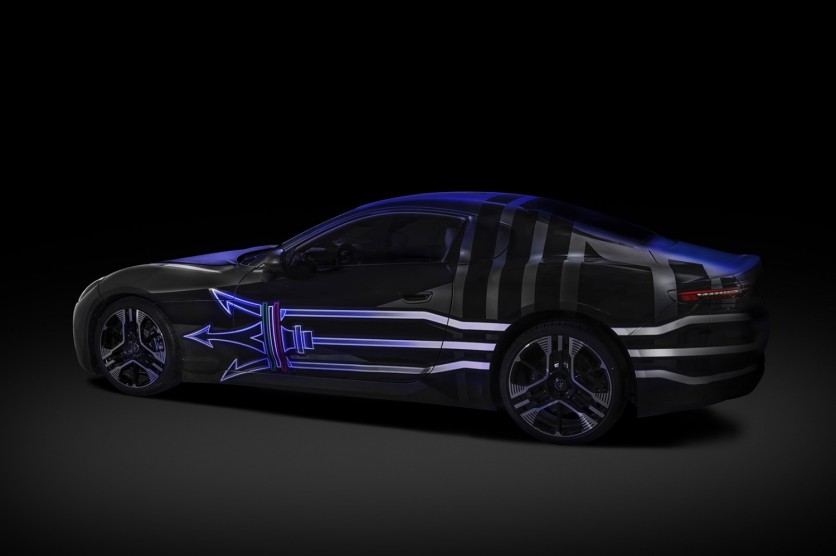
Maserati is taking its fleet of Italian sports cars and SUVs to a whole new realm: electric. The concept has been floated for years by the automaker, with much of the reluctance coming from its parent company, Stellantis, and its chief Sergio Marchionne, who didn't see the viability in EV distribution.Now, however, Maserati sets its sights on a bright future, one that is detailed largely via CEO David Grasso in a press conference on Thursday, March 17, wherein he discloses plans of reinvigorating the Maserati formula. By 2025, Grasso wants to bring electric versions of all its models to the show line and, by 2030, has plans on delivering only EV sales to build a more forward-focusing image to the brand.
The new GranTurismo will be the first car in Maserati history to adopt 100% electric solutions, and will debut in 2023. Maserati is the first Italian luxury car brand to produce full-electric models.
— Maserati (@Maserati_HQ) March 17, 2022
Discover more about the Folgore range on https://t.co/gvVkEDELHK #Maserati pic.twitter.com/guQybDJmBE
The details come resplendent with concepts like the next-generation Maserati GranTurismo, Maserati Grecale SUV, and the Maserati Levante, all of which are billed under the Folgore line of all-electric vehicles. Maserati will also be included in this line of rides several of its most notable convertibles and luxury sports cars but did not specify which ones.
Amid the press conference, Grasso explains 2030 as a "landing spot," a place in time where Maserati will aim to eradicate internal combustion from its lineup. The move will, however, depend upon the forthcoming markets and consumer interest going into the future, but the CEO seems quite adamant on this timeline.
"It will affect different parts of the world with a different type of speed, depending on how fast the different markets will move towards a future of electrification, which is already upon us," he says. His goal is not only to sort of rebrand Maserati as a forward-thinking automaker but be among the first in the luxury car world to deliver an electric lineup by 2025.
Similar concepts and idea are being discussed at rivals, such as Ferrari, Lamborghini, and Porsche, all of whom now offer EV plans, with the latter delivering its own model, the Taycan, to its avid consumers. GM itself proved bullish in its approach to the EV sector with a relatively long preamble amidst CES 2022, underscoring its future Chevrolet Silverado, "the first-ever all-electric" iteration.
These plans by Maserati come on the heels of parent company Stellantis' own announcement made at the beginning of March, highlighting Alfa Romeo, Lancia, and DS as all formulating similar roadmaps. The overall plans, coined by the parent company as "Dare 2030," insist it will move away from ICE rides as fast as possible to cut its carbon footprint by 50% heading into 2030. This goes for all of its automakers, including Jeep, Fiat, Puegot, and more.
Rival Jaguar has similar plans, as well. Both Jaguar rides and Land Rover SUVs will have an EV variant on the block by 2030. Newly-appointed Jaguar Land Rover CEO Thierry Bollore vies to similarly end its own carbon emission by 2039, a feat that seems generous but wil, like Maserati's, rely heavily on market fluctuations and the viability of EVs heading into the future.
For Maserati, it's all about worthwhile endeavors and ensuring consumers' demands are met. The electric GranTurismo, for one, appears to be a friend despite its EV denotation. It boasts "best in class" handling thanks to three electric motors, 1,200 horsepower reaching at about 62 mph, with a top speed of 300 km/h, or 186 mph. To be sure it's a starting phase for a new era in Maserati auto concepts.
Its Folgore line will likewise feature the Maserati MC20 Spyder, a Quattroporte sedan, and a 2023-set Grecale SUV, which is pitted to be "a benchmark in terms of range, performance, acceleration, charging time, top speed - everything," according to Maserati global head of product planning Francesco Tonon.
Level 3 autonomous technology is also on the table for the company and a major point of development for the automaker's four-door Quattroporte. This will allow the vehicle to drive itself, without the need for human inputs theoretically completely, but will be limited only to specific roads and highways.
ⓒ 2025 TECHTIMES.com All rights reserved. Do not reproduce without permission.




